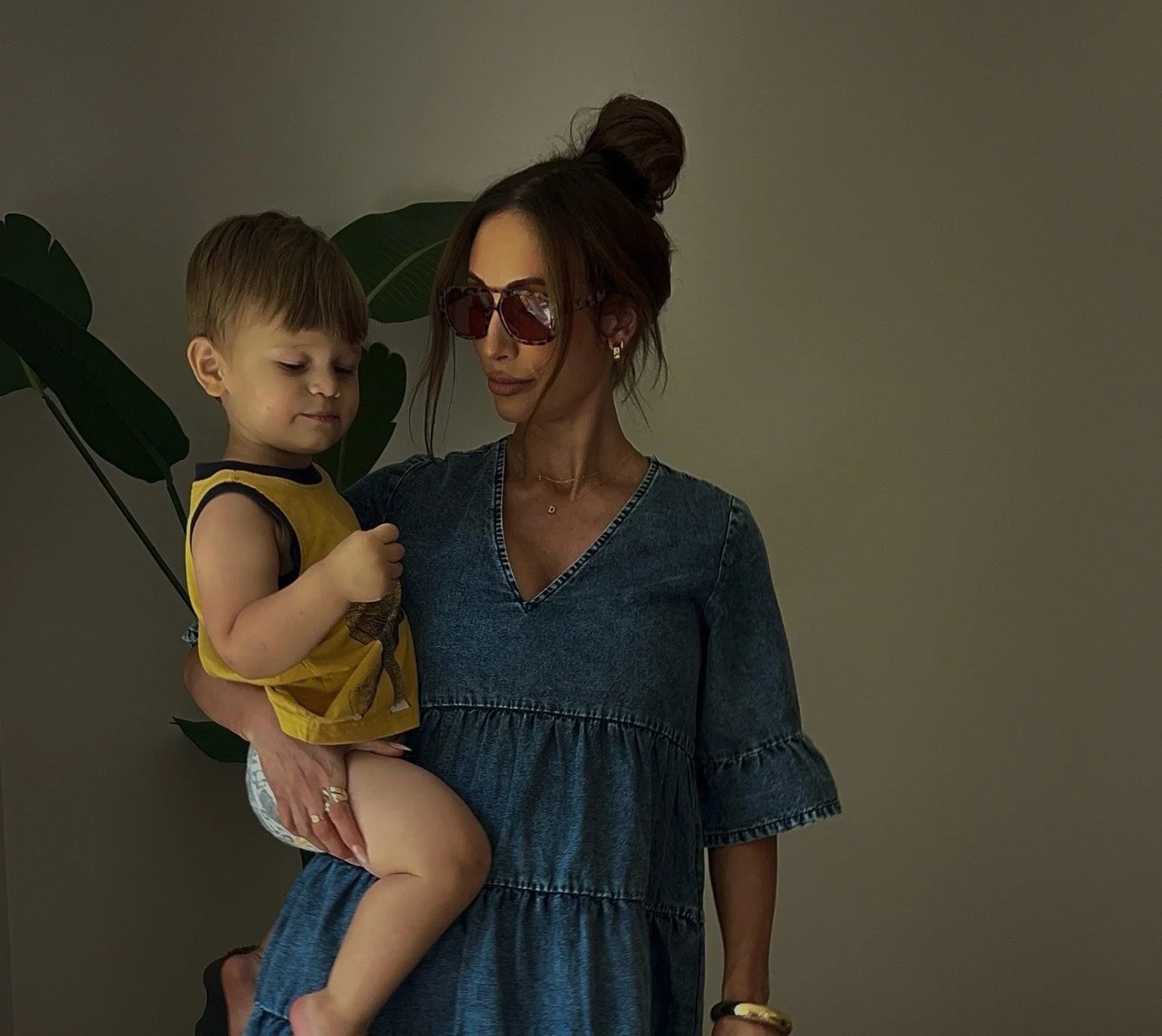Intrusive Thoughts: You’re Not Alone, Mama!
Hey mama,
Let’s dive into a topic that's often whispered about but rarely discussed openly: intrusive thoughts during the postpartum period. To shed light on this, we sat down with Casey Mouton, a California-based Marriage and Family Therapist specializing in maternal mental health. Casey's insights are both enlightening and comforting, reminding us that even the most unsettling thoughts are more common than we might think.
What Are Intrusive Thoughts?
Intrusive thoughts are those pesky, unwanted images or ideas that pop into your mind unexpectedly. Casey explains it perfectly: "One minute you might be breastfeeding your baby, and the next you’re imagining them choking, even though everything is okay and they’re safe. It can feel very real."
These thoughts often intensify during the postpartum period due to the sheer vulnerability and upheaval of becoming a new parent. Casey notes, "For many new moms, having an intrusive thought can bring about worry and self-doubt related to parenting. However, intrusive thoughts are more common than you think."
Why Postpartum?
The postpartum period is a cocktail of sleep deprivation, hormonal changes, and immense responsibility. It's no wonder our brains sometimes play tricks on us. "When you are running on very little sleep, we see a rise in anxiety or depression which can at times cause an uptick in intrusive thoughts," says Casey. And let's be real, sleep deprivation is practically a rite of passage for new parents.
PMAD: A Closer Look
Casey delves into what she refers to as PMAD, or Perinatal Mood and Anxiety Disorders. "Sleep deprivation and hormonal changes can be major contributors to what we call a PMAD. PMADs affect as many as 1 in 5 moms, so this is something that is happening all around us but yet there is such little attention and support given to new moms."
Because PMADs can be so impactful, Casey always starts with the basics: "Whenever I begin working with a new mom, I always start with sleep. How can we get you more sleep and protect your sleep? It is so important."
Coping with Sleep Deprivation
So, how can new moms manage to get more shut-eye? Casey offers some practical tips: "Sleeping in shifts, having family help, or even using a postpartum doula can be great ways to get more sleep which can help so much with maternal mental health."
When it comes to those raging postpartum hormones, Casey suggests, "I always suggest clients discuss with their OBGYN or midwife testing for hormonal deficiencies if they are feeling off or that something is amiss."
Managing The Mayhem
So, what can you do when these thoughts strike? First, Casey emphasizes the importance of normalizing and validating your feelings. "These thoughts are scary, but they aren’t facts," she says. Grounding techniques, like deep breathing exercises or sensory check-ins, can help anchor you in the present moment.
"Therapy is also a really wonderful and safe space to share these thoughts with someone. Just speaking them out loud can reduce the power a client may feel it holds," adds Casey. Apps like Calm or Headspace offer short meditations perfect for busy moms needing a quick mental reset.
The Role of Medication
Let's address the elephant in the room: medication. "Medication, while not for everyone, can also be a great tool," Casey says. "There are so many medications that are safe to take during pregnancy and while breastfeeding that can lessen symptoms of anxiety and make doing the work in therapy related to managing intrusive thoughts much easier." And let’s be clear, there’s absolutely no shame in taking medication if it helps you be the best mom you can be.
When To Seek Help
While intrusive thoughts can be a normal part of the postpartum experience, they shouldn't interfere with your daily life. Casey advises, "If you feel too scared to pick up the baby, or find you can no longer go down the stairs, those would be times where speaking with a licensed therapist specializing in maternal mental health would be so helpful."
Resources To the Rescue
For those seeking support, Casey recommends Postpartum Support International (PSI). "They have free support groups for so many topics, a 24/7 help line, and even a mentorship program where you can be matched with someone who has gone through a similar experience," she says. Dr. Cassidy's podcast also comes highly recommended, offering a wealth of information from specialists on parenting and mental health.
You Are not Alone
Motherhood is not about suffering in silence. Casey's parting advice? "I want people to know they aren’t alone and that they will feel better. Help is always available! Motherhood is not about suffering."
Here for you,
Take care of yourself, mama. You've got this.
Follow CAsey on IG: @therapy.with.casey




